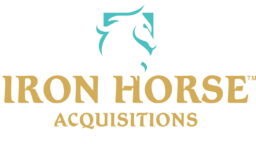The Music Acquisition Corporation (TMAC) has set the date for shareholders to vote on a proposal to liquidate the company’s trust account as the blank-check company still has yet to merge with a potential target company over a year since it went public.
The special purpose acquisition company (SPAC) will hold a virtual special meeting of shareholders on Wednesday, November 30, at 10 am Eastern Time.
Shareholders will be asked to vote on two proposals including changes to the company’s amended and restated certificate of incorporation or its “charter.” Under the current charter, TMAC has to consummate its business combination on February 5, 2023.
TMAC emerged back in January 2021, when Music Business Worldwide revealed that long-time Geffen Records President Neil Jacobson was plotting a flotation of a new music company in the US.
Jacobson’s blank-check company, The Music Acquisition Corporation (TMAC), floated on the New York Stock Exchange in February last year under the ticker symbol TMAC.U, raising $230 million in the process.
TMAC.U, formed specifically to effect a merger/acquisition in the worlds of both music rights and music tech has been largely quiet since then – something that now doesn’t look likely to change in the near future.
Now, according to a filing with the Securities Exchange Commission (SEC) in the US, Jacobson’s SPAC has written to its stockholders to seek approval, via a vote, to liquidate early.
The scheduled meeting will also determine whether shareholders will approve TMAC’s plan to liquidate its trust account worth $230 million. They will be voting on changes to TMAC’s agreement with the company’s trustee, Continental Stock Transfer & Trust Co.
If approved, the company will redeem all of its outstanding Class A common shares by the end of the year, earlier than the previously agreed upon date on February 5, 2023, or the contractual termination date.
Under US listing rules, SPACs that fail to merge with a target company within two years since going public should be dissolved and return all funds to investors.
Since debuting on the NYSE in February, TMAC still has yet to combine with another entity. TMAC recently disclosed that its management has reviewed an undisclosed number of potential targets, but has “not entered into an agreement to effect a business combination with any of these potential targets for a variety of reasons”.
The reasons include the parties’ inability to reach a consensus on valuation; a preliminary assessment of a potential target company’s business model, customer concentration, competitive landscape and risks to future financial performance; an assessment of the relevant target company’s ability to execute its business and financial plans and grow its business; and alternative options available to potential targets like pursuing traditional IPOs or waiting for the capital markets to improve before going public.
The news comes as a report from CNBC, citing new data from SPAC Research, notes that 27 SPAC deals, worth $12.8 billion, have been liquidated in 2022 so far.
CNBC notes that SPACs have been prompted to ‘close up shop’ due to President Biden’s Inflation Reduction Act, which imposes a 1% excise tax on stock ‘buybacks’ after December 31, 2022.
Unsurprisingly, Jacobson’s SPAC also cites President Jo Biden’s Inflation Reduction Act, and the incoming 1% excise tax on repurchasing stock, in its filing.
Another factor that TMAC identified is the new regulatory landscape in the US as the SEC is pushing to enhance disclosure in mergers involving SPACs and private operating companies.
“Our board of directors believes that the SEC’s proposed rules, if adopted, whether in the form proposed or in revised form, may materially increase the time required to negotiate and complete an initial business combination and could further impair our ability to complete an initial business combination” by or before February 2023, TMAC added.
TMAC’s inability to enact a merger highlights the challenges faced by SPACs in the current market.
The blank-check company determined “that it is very unlikely that we would be able to complete a business combination” after careful consideration.
TMAC’s shareholders may request the company to redeem all or a portion of their shares for cash if the charter amendment proposal is approved, the company said.
Holders of the firm’s NYSE-listed units must vote to separate the underlying public shares and public warrants before exercising redemption rights, TMAC added.
Music Business Worldwide




